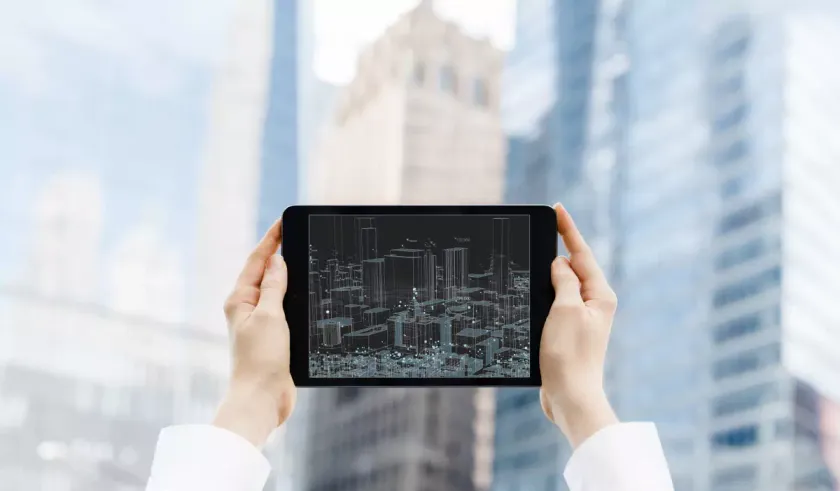Digitalization in the Construction Industry – A Brief Overview

For years, the shifting needs of the customer and how to serve their needs have been top of mind for company executives. More choice, faster delivery and flexible service models have long been the mantra of the consumer sector, while solution and performance-based models are the pursuit of the industrial sector.
What has changed, however, is the increasing ability of nontraditional competitors to deliver on the extremes of these preferences. Many nontraditional competitors are able to deliver highly personalized, purpose-driven products and services quickly, and virtually anywhere. They manage through this with high-touch customer service. This approach often erodes short-term profit margins, but helps build trust from customers (who feel that they are getting what they want) and set the base for long-term scale.
Nontraditional competitors, known as Disruptors, are not only entering markets and turning business models upside down, they are changing how talent is attracted and managed, how organizations are designed, and how technology is leveraged. They are changing how new products and services are designed and launched, and reshaping customer expectations.
Over the next 10 years, businesses will progressively delegate decision-making authority to technology. This is especially the case for Heads of Strategy in Supply Chain. They now must prepare to respond to the opportunity of hyper automation and IoT and responsibly manage the implications on the business.
Customer proximity and intimacy — the ability to know what products and services customers really want — is critical for a company’s long-term success. By identifying an unmet need in a marketplace, companies establish a demand that they can then align their supply chains to fulfill. But this characteristic is one that many established companies risk losing over time, leaving an opening for competitors to exploit. As companies are lulled into complacency by long-established strategies in supply chain, sales, marketing and product development gaps arise in product and service offerings.
If we look at the Construction Sector, and the advent of unprecedented change along with the need for greater agility, we can see that Technology Disruptors are more and more providing solutions that have the Customer at their heart, along with the need for speed, flexibility, real-time results and ease of use.
Digitalization is the key enabler to shape business opportunity in the decade ahead. Property Developers and Construction companies, backed by an infusion of investments, will leverage digitalization to create customer-centric, agile and cost-optimized end-to-end supply chains. Expected benefits aren’t from employee reduction, per se, but rather from unleashing their trapped talent by freeing up their time from non-value-added tasks. Redefining digital strategies, driving innovation, taking care of customer service and experience, and controlling AI decision making are some of the human tasks in the autonomous supply chain of the future.
According to Melanie Cook, GE Appliances’ Chief Operating Officer,
We have a broad strategy to go after end-to-end digitization, which starts with the owner in the home, all the way through to the end of the supply chain and then circling back around. We believe in zero distance to the customer, so to do that, having as much as we can automated all the way into the home is critical.
The company has already deployed digital technology in appliances. If the customer opts in, the digital technology enables the company and the customer to work in tandem to keep their appliances working efficiently. For example, when connected, the digital technology remotely monitors and understands if a heater element in a customer’s dishwasher is not working properly. The company can notify the customer of needed service through an app or online, and the customer, in turn, can schedule the service using the same technology.
Another example of Disruptor Technology with agility and customer experience at its centre, is Creatomus, an Estonian based Housing Configuration Company with Tech at the core of its offering. Their online application in 3D allows the end user to customize their future home, while keeping updated about the performance indication and the cost of building. Creatomus developed its first house configurator in 2015 at the Greentech Hackathon. Now, 6 years later, they have established a solid online platform and delivered house configurators in a wide variety of geographical locations, such as the UK, US and across the EU.
Their CEO Renee Puusepp has said
The beauty of our Tech offering is we can work across a huge geographical area in real-time in a virtual environment. Now more than ever, this innovation is so important and helps to foster a contactless environment that saves time and money, all the while driving an innovative solution that works for Architects, Developers, Construction Companies and the end buyer.
This technology development in the Construction industry speaks to the urgent need for driving business more efficiently, allowing for a more seamless relationship between Property Developers, Construction companies and the end buyer, all the while giving the customer the utmost of service and flexibility.
With the ever-changing needs of the marketplace for both companies and end buyers, we will more and more see the advent of global business partnerships and the ability to leverage from Disruptors across the world. Digitalization of processes and supply chain initiatives in the Construction Sector will allow more healthy competition in the industry, as well as holistically allowing for supply and demand to be more balanced.
The strategic objective here is to create and dominate a new industry value chain based on digital economics. How far these strategies will transform the industry is not yet known. However, the experience of other industries indicates that new ecosystem platforms will appear that disrupt sales/distribution chains, control/optimize asset performance or extend/displace service markets.
Watch this space!
Sources:
Gartner 2021
Irish Construction Federation 2021
Image:
Freepik